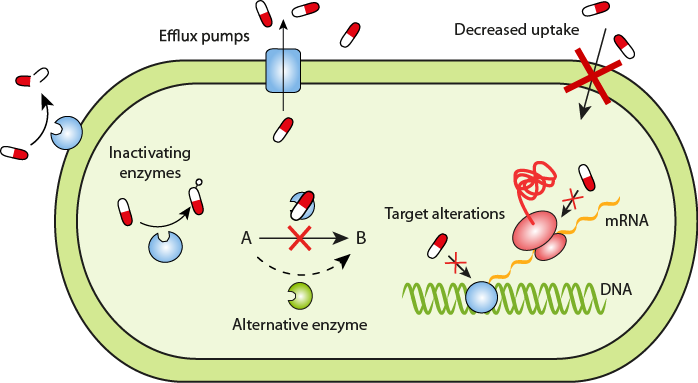The types of antimicrobial resistance
Apr 13, 2023
This paper discusses the various types of antimicrobial resistance that have been identified. These include bacterial resistance, fungal resistance and viral resistance.
Bacterial resistance is the most common type and occurs when a strain of bacteria has developed a defense mechanism against an antibiotic or other drug used to treat it. Fungal resistance happens when certain fungi develop mechanisms to resist antifungal medicines, while viral resistance occurs when viruses become resistant to antiviral drugs. Each type of antimicrobial resistance presents unique challenges in terms of treatment and prevention. For example, research has shown that some forms of bacterial resistance are more difficult to treat than others and require specialized treatments. In addition, the ability for viruses such as HIV/AIDS and influenza to rapidly evolve makes them particularly difficult to combat with existing antiviral treatments.

In order to address the challenge of antimicrobial resistance, scientists and medical professionals are exploring new ways to tackle the issue. Some of these approaches include using a combination of drugs to target multiple types of resistance; developing more targeted treatments that reduce the risk of encouraging further drug resistance; and researching potential alternatives to traditional antibiotics and antivirals.
While it is difficult to predict when or where new forms of antimicrobial resistance will arise, it is important for researchers and clinicians alike to remain vigilant in their efforts to find solutions. With appropriate preventive measures, timely diagnosis and effective treatment strategies, we can help reduce the risks associated with this growing global threat.
All in all, antimicrobial resistance is a serious and increasing problem. It is important to understand the different types of resistance, their effects on medication effectiveness, and how to best reduce our risk of developing such threats. By staying informed and taking action, we can help protect ourselves against the dangers posed by antimicrobial resistance.
